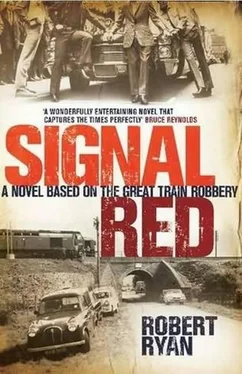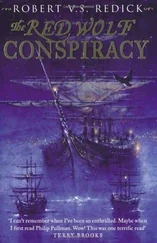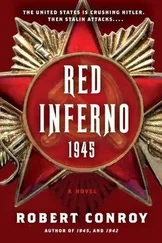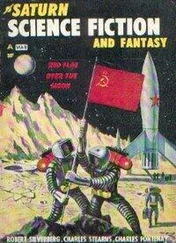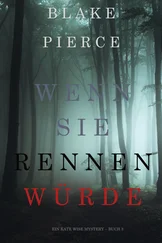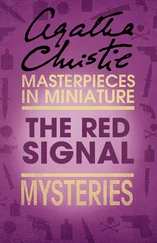Dorking cash when they realised it was ill-gotten gains. But that was never substantiated.
Also useful was Villains' Paradise by Donald Thomas, Gangland Soho by James Morton, The Flying Squad by Norman Lucas and Bernard Scarlett, and The Underworld by Duncan Campbell. For some of Bruce's answers to Colin Thirkell (a fictionalised version of Colin Maclnnes), I dipped into The Courage of His Convictions by Tony Parker and 'Robert Allerton', a series of interviews with a career criminal in the early 1960s. Plus the News International archives provided many contemporary accounts, as did the Colindale Newspaper Library.
For the scenes at Ronnie Scott's, I relied on Jazz Man: The Amazing Story of Ronnie Scott and His Club by the always- excellent John Fordham.
Part of Chapter 42, the police car chase, is inspired by the opening scenes of Robbery, Peter 'Bullitt' Yates's 1967 film that also fictionalises the events of August 1963. Star and producer Stanley Baker was a well-known face in the clubs and pubs frequented by the underworld, and Peta Fordham, who wrote The Robbers' Tale, was an adviser, so the core planning and robbery is very well portrayed – far better than in the later Buster.
Paul Wilson of the Kent & East Sussex Railway (www.kesr.org.uk) took me through how to start and drive diesels large and small, as well as the signal warnings that sound in the cab. Any errors in that department are mine alone.
The majority of events in this novel are true, although some of the dates have been shifted, but the details of the airport and train robberies and incidents such as Gordon Goody being arrested because he had managed to disguise
himself as Bruce Reynolds; the two Jags being stolen before the first train robbery; Charmian Biggs telephoning the police to help find Ronnie; the burglary of Bruce Reynolds's hideout; the capture of Roy James; the find of money in Dorking and the phone box – are genuine occurrences. Len Haslam, Billy Naughton, Tony Fortune and Tiny Dave Thompson, however, are totally fictitious characters (and any resemblance to real police and thieves is entirely coincidental), although they are often slotted into actual events. 'Ralph' is also a fiction. No train robber died on The Spirit of Free Enterprise.
I would like to thank Bruce Reynolds for reading a version of the book and treating it kindly. We had a very convivial lunch together, since we share an interest in cars, planes, guns, the war, film noir, tailors and jazz; however, those who want Bruce's viewpoint should consult his autobiography. This is a fictional account and he is in no way responsible for any of the content.
I am particularly and eternally grateful to Rowland Cordery, who broke a long stalemate by dreaming up the title Signal Red, which was just so perfect it made all the many suggested alternatives – most of them mine – look feeble in comparison.
Finally my gratitude goes, as always, to David Miller, Jo Stansall, Katie Haines, Sheila David, and, of course, my editor for eleven books now – does that make him eligible for the prefix 'longsuffering'? – Martin Fletcher.
Robert Ryan, London. www.robert-ryan.net
Afterword by Bruce Reynolds
At 8 a.m. on 8 August, 1963, the BBC broadcast a news item that made the whole country sit up and take notice. The gist of it was that a Glasgow to London mail train had been stopped and robbed at Cheddington, near Tring, Buckinghamshire. Details were sketchy. It had happened at about 3 a.m. that morning; the driver and the fireman had been attacked and injured and the front two coaches of the train had been detached. Senior police officers were already at the scene. Although it was clear that a large number of men had taken part and that they had stolen a considerable amount of cash, nobody was certain of the amount involved. I, of course, knew by then how much it was, because wc had counted it. We had taken the Royal Mail for just over million in used notes (the best part of £40 million now). Staggering – the stuff of dreams.
The heist was known during those first few frenzied hours as The Cheddington Mail Train Robbery, but this was soon deemed not snappy enough. Instead, the media lifted the title of The Great Train Robbery from an American film dating back to 1903. With massive public interest in the event, the
authorities became angry and agitated. There were questions in parliament, and reverberations spread through the country and across the globe like a distant but persistent drumbeat. The words echoed down the corridors of power: 'They must be caught and convicted'.
The police were given carte blanche, and the 'big boys' were called in, notably the Flying Squad, with Tommy Butler as Thieftaker General. It was a job he was admirably suited for, as he remarked with conviction to his colleague 'Nipper' Read: 'We'll get the bastards'. The hunt was on.
Rumours were rife. Informed sources said the organiser of the robbery was an ex-commando; others claimed that Billy Hill, the self-proclaimed King of the Underworld, was involved. Both wrong, of course. Names were bandied about, reputations besmirched, with plenty of winners and losers in the media frenzy that surrounded the robbery. The biggest losers, of course, were the men who robbed the train.
None of the actual robbers appreciated the full consequences of their actions; it only became apparent at a later date just how determined the authorities were. The scale of the manhunt, the size of the rewards offered and, especially, the eventual sentences were all unprecedented. Thirty years was unheard of, even for terrorist bombers.
But 'stone walls don't a prison make, nor iron bars a cage'. And so it proved to be. Charlie Wilson and Ronnie Biggs refused to accept their dire situation and promptly escaped. The media revelled in this turn of events and the hunt stepped up a gear. As did the whole story of The Great Train Robbery, which went through peaks and troughs of public interest, subsiding when the chase went quiet, thrusting its way back into the limelight with Ronnie's rip-roaring adventures in Rio. The public applauded this cheeky chappy, their emotions
switching from curiosity, through admiration to envy: who wouldn't want to live a free and easy life in Rio?
The story has been told many times now, but continues to fascinate the media and readers, perhaps because it all begins with intrigue and ends in mystery.
Now Robert Ryan has fictionalised the tale based on known facts but using imagined situations and dialogue, a technique he has employed before in his novel Death on the Ice, about Captain Scott, and with Lawrence of Arabia in Empire of Sand. They were both key characters from my boyhood days, which is what attracted me to his work. The story he tells in Signal Red is impeccably researched and the salient facts are all there. For his characterisation, however, he had to rely on contemporary accounts, memoirs, other writers' descriptions and conclusions (many of the major figures on both sides of the law being deceased) and his own interpretations, and that doesn't always fit with my own memories of some of the personalities involved.
That is not to say he is wrong. In fact, he could be correct. At the time I might well have been blinkered: the light that he shines illuminates some dark corners whilst throwing shadows on others. But while my memory and his version don't always see eye-to-eye, he captures the times perfectly and particularly the essence of camaraderie which existed and flourished under the banner of crime, specifically robbery. When a group of men embark on a nefarious series of enterprises that will, almost certainly, see some of them in prison, losing everything, then your relationships with your fellow robbers become the most important element of the undertaking. Being able to trust them is of paramount importance (and remember, none of the robbers turned Queen's Evidence or co-operated with the police in any way).
Читать дальше
